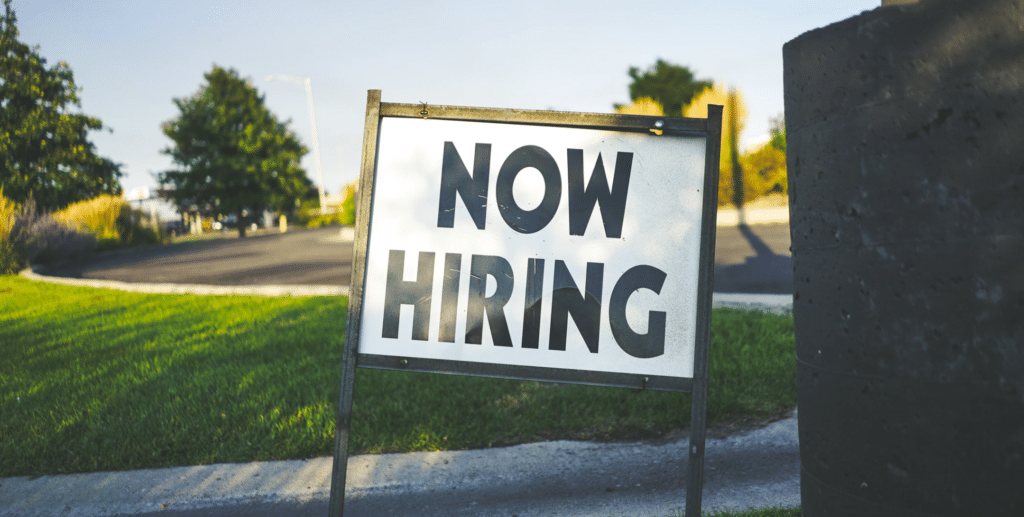This post may contain affiliate links, which means I’ll receive a commission if you purchase through my links, at no extra cost to you. Please read full disclosure for more information.
The most painful part about transitioning into your professional life is trying to get hired for that first internship. It’s painful because of how hard it is and how irritating it can be to acquire the experience employers are looking for.
You’ll come across the “chicken and the egg” issue. You need the internship to gain experience, but employers offering the internship are requiring prior experience to qualify. How are you expected to have prior experience when the job itself is supposed to supply the experience?!
It’s a problem that troubles many, but we’ll go into detail on how to get around that in this post. I was once in your shoes, trying to find ways to gain experience to qualify myself for an internship in finance.
I can tell you from experience as an interviewee and as an interviewer that there are things you can do to get an internship in business without any prior work experience in the space.
It comes down to two things
Landing an internship will come down to two things:
- Getting your resume noticed and chosen for an interview
- Demonstrating experience, competence, and fit during the interview
While having relevant work experience can help you in these two areas, there are other things you can do as well. We’ll begin by discussing how you can boost your resume to get noticed and get your foot in the door for an interview.
8 THINGS TO DO TO LAND AN INTERNSHIP WITH NO EXPERIENCE
1. Maintain a high GPA
We’ll start with the obvious. A higher GPA will get your resume noticed and at least communicate that you are book smart and diligent. GPA is not the be-all and end-all factor in getting hired for an internship, but a high GPA sure won’t hurt.
Focus hard on excelling in your classes to help make up for your lack of experience.
2. Take relevant classes

Your coursework in school can also help you develop experience for an internship. As an example, I took two electives in college that greatly increased my marketability for internships:
- Advanced Excel for Finance
- Financial Modeling
These two classes taught me tangible skills that were transferable to the workplace. All companies use Excel, and since I was a finance major entering the finance world, all the internships I was pursuing required Excel skills.
I listed those two courses on my resume, which probably helped my resume in standing out and showing that I knew something useful. You can list classes on your resume similarly to the example below.

When picking your college classes, take a second to think of how that class could teach you the skills you need in your career. Or, think about classes you have already taken and how that gave you experience for the field you want an internship in.
If you are pursuing an accounting internship, you can include your accounting classes or projects as bullet points on your resume.
3. Try to get jobs that have some sort of relevance
If you are a business student looking to get an investment banking internship, you can start by getting jobs that have some sort of relevance to banking. A job within the business school as a Teaching Assistant for a finance class could be an example. This looks more promising on a resume than a job as a pizza delivery person.
A job as a pizza delivery person in college isn’t a bad thing and you could still get hired for your first internship even if that was your job, but if you have the opportunity to, try to work in jobs that are more aligned with the field of work you are looking to enter.
Another job could be being an assistant to someone at a firm. Although you are an assistant and most likely doing administrative work, you are at least exposed to a professional environment and nonetheless gain valuable experience.
Just because you plan on being an investment banking analyst does not mean that other jobs can’t provide you with experience to get that first internship.
Once you get to the interview, you can communicate how a particular job has prepared you for a banking internship.
4. Join clubs and take leadership positions

Colleges offer a seemingly endless number of clubs and organizations on campus that you can join. I’m a strong advocate for getting involved for many reasons, but one of them is boosting your resume to gain experience for your internship. You shouldn’t just join clubs, but you should try to run for leadership positions within them as well.
You’ll build actual skills you can transfer over to the workplace and you will have experiences and stories to draw from during an interview. On your resume, you can list out what leadership positions you held within these clubs, which looks great to employers.
There’s a high chance that the individuals conducting the interviews were once in college as well. They know how full a schedule can be during school and they respect anyone who adds more to their plate.
Reasons why leadership positions within clubs look appealing to employers include:
- Joining clubs shows you put in the extra effort and take initiative
- Taking leadership positions proves you have leadership qualities
- You’ll likely have good social skills, soft skills, and know how to work in groups
- Balancing several clubs shows you have time and project management skills
- Membership to a variety of clubs can show versatility
All the above are sought after traits by companies and greatly boost your chance of getting hired for an internship. Joining clubs on campus helped me build confidence, meet great people, build professional skills, and made my resume stand out.
Clubs I personally joined in college include:
- Student government
- Greek life
- A few clubs within the business school
5. Participate in events and competitions
Companies will often offer events and competitions on campus. You should take advantage of these and participate. For example, one of the Big 4 accounting firms hosted a case competition at my university where teams would participate on a case and present the best solution for it.
Events like these can teach you a whole lot and you can include them on your resume. When companies put on events, the events will teach you skills actually used and desired by the host company. In addition, the brand names that host events hold weight. Seeing the name of a Big 4 accounting firm or an investment bank on your resume will help you stand out.
Go to all events, workshops, and competitions. They will help you in more ways than simply adding another bullet on your resume.
6. Expand your skillset on your own

With the content available online, you can improve your skill set on your own to try to gain the knowledge and experience required for an internship. Online courses can help you build any skill you want and add to your professional toolkit.
If you want to be a financial analyst, you can take a course and learn all about it. Usually, after you finish a course, you get a certificate or something similar proving you finished the material. Once finished, you can include the course on your resume in your “relevant coursework” section. See our post on the financial analyst resume.
In addition to taking the course, you can also work on the assignments from that course and print them out as demonstration you can execute a skill such as building a financial model. If you walk them through a model you built in person during an interview, you will stand out and they will see that you are competent.
When you lack relevant work experience, look for ways to build your skills on your own. You could also try to get certifications to boost your knowledge and credibility.
7. Do summer sales
Summer sales is a tough job to do, and I think everyone realizes this. That is the exact reason you should do it in the years prior to the summer you want to get an internship.
I never did summer sales myself, but if I could go back, I would. For one, is a great way to make money as a college student, but I believe the skills you build are more valuable. Learning to sell, get over rejection, and grind it out day after day builds character.
Summer sales may or may not directly relate to your profession, but those hiring will respect it if they see it on your resume. They know over 90% of people out there aren’t willing to do summer sales. If you were willing to, you must have some sort of skill and mindset that could help the firm.
8. Never act too good for anything

Lastly, I would share with you that you should never see yourself as above something or above a certain job, or club, or class. You have to be willing to take what you can to gain skills, become knowledgeable, and beef up that resume to get noticed.
Working for free or doing something you are uncomfortable with will happen occasionally. Don’t pass up opportunities just to avoid those things or because “they aren’t good enough.”
Working as an assistant to a real estate firm may not be what you are looking to do long-term, but you can learn a lot from a position like that. If you avoiding a leadership position in a club because it is small, take that anyways.
Don’t simply aim for the glamorous positions and opportunities. Look objectively at what is presented and pursue things that will help your career.
PART 2: DEMONSTRATING IN THE INTERVIEW
As discussed in the opening section, the second part to getting an internship is to demonstrate experience, competence, and skill in the interview. You can do this without have prior relevant work experience.
When you do things such as becoming a teaching assistant, taking relevant classes, becoming a leader in a few clubs, doing summer sales, and building skills on your own, you go through experiences and lessons that you can draw from during interviews.
Imagine you get asked the following in an interview:
- Tell me about a time you worked in a group and had a tight deadline. How did you respond?
- Can you tell me a story showing how you are a leader?
- What are your greatest achievements?
- What kind of professional skills do you have that make you a great candidate for this position?
If you take the tips from this post and implement them, you’ll be able to answer all of these questions with ease. You’ll be able to demonstrate to your interviewers that you are a professional. Although you may not have prior work experience, you have the skills and mindset to pick things up quick as an intern.
For additional help on on preparing for interviews, check out out post: How to Prepare, Practice, and Study for an Interview: Ultimate Guide
SUMMARY
Getting that first internship is one of the biggest obstacles in your professional life. From personal experience, I can say that once you get your first internship, the following internships and full-time offers become much easier to get.
It just comes down to experience. Employers want experienced candidates that can perform. This creates a tough barrier to entry for students who haven’t had an internship or relevant work experience yet.
The ideas shared in this post can help you get around that barrier and secure an internship in other ways. Stay on the lookout for opportunities and do what other candidates are unwilling to do. This is how you stand out.



